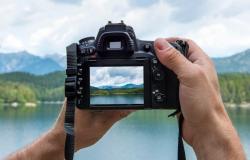Today
•
reading time 6 minutes
From recent research It appears that approximately one and a half million people in the Netherlands are hearing impaired. Hearing loss has a major impact on the quality of life. A third of hearing impaired people experience mental problems, such as anxiety and depression, which leave them socially isolated. Reason enough to protect your ears well. We have listed ten tips to prevent hearing damage.
1. Be careful when using cotton swabs
Maybe you have done it yourself: cleaning your ears with a cotton swab. A cotton swab seems like the perfect product to remove excess earwax, but appearances can be deceiving. It doesn’t take much to rupture your eardrum. This can be done by the slight pressure you put on the eardrum when you use a cotton swab. The eardrum often heals within a few months, but it can also lead to permanent hearing loss.
What can you do to clean your ears? While showering, you can run a small stream of warm water into your ear canal. This softens the earwax and it will drain out after a few minutes. If your ear canal is completely blocked, it is advisable to contact your doctor.
2. Use an app to measure the loudness
The noise level is expressed in decibels (dB). Every three decibels louder is a doubling of the sound. So it makes a big difference if the sound is a few decibels louder. It is often not immediately clear how loud the sound is in a room. To find out whether the sound is too loud, you can use an app that measures the loudness.
There are many decibel apps for both iOS and Android. Choose an app that you can calibrate, because they are the most reliable. The microphone of your smartphone is not guaranteed to be properly adjusted to measure the sound level. During calibration, the app compares the measurements of the microphone with a set standard. When properly adjusted, the app can ensure accurate measurements of sound levels. Useful apps include Sound Meter & Sound Detector (Android) or NOISH Sound Level Meter (iOS). These apps can be downloaded for free.
3. Set a volume limiter for your headphones or earbuds
Enjoy listening to some music or playing games for hours. Many use headphones or earplugs. Without the use of a volume limiter, you actually have no idea how loud the sound you are listening to is. If you do not set a limiter on your phone or tablet, the noise can be a maximum of 100 dB. At this volume you can suffer hearing damage after just five minutes. Therefore choose a safe limit of 85 dB.
To set a volume limiter for iOS:
- Go to Settings
- Choose hearing and feeling
- Click on headphone safety
- Slide on ‘reduce loud noises’
- Check whether the volume is set to 85 dB
To set a volume limiter for Android:
- Go to Settings
- Choose sound and vibration
- Click on volume
- Go to the three dots at the top right of your screen
- Choose media volume limit and turn it on (this is set to 85 dB by default)
You cannot set a volume limiter on all Android devices. If it is not on your phone, it is recommended to set the volume to a maximum of two-thirds of the volume bar.
4. Invest in good headphones
In addition to setting a volume limiter, it is advisable to invest in good headphones. It is often better to choose headphones than earplugs. Good headphones have noise canceling and completely cover the ear. Your ear is thus closed off from ambient noise. This also makes you less inclined to turn up the volume. In addition, such headphones are also located a little further from the inner ear, which reduces the risk of hearing damage.
5. Wear hearing protection
It may seem obvious, but hearing protection is very important to prevent damage. You run a lot of risk, especially during concerts and festivals. To protect yourself, there are special music earplugs on the market. You can still hear the music clearly through these caps, but they ensure that the sound level is muted. Kassa previously tested which one earplugs with music filter you can best use. Please note that this test is from 2015 and may therefore be less representative.
It is also advisable to use hearing protection while working. Hand drills and chainsaws easily produce a noise level of more than 100 dB. To protect yourself from this noise, it is best to choose earmuffs. These provide the best seal for your ears from the sound.
6. Stay away from the speakers
When you go to a concert, it is tempting to stand right at the front near the speakers. This is just not nice for your hearing. To better protect your ears, it is advisable to stand several meters away from the speakers, in addition to wearing earplugs. If you can stand at least two meters from the speakers, that will make a difference of about ten dB. If the concert is outside, you must keep a distance of at least 10 meters from the speakers.
7. Be aware of the side effects of medication
Medicines are supposed to make you better, but some types have unpleasant side effects, including ototoxicity. Ototoxicity is a property of certain medications that causes hearing problems.
In some cases this is a temporary effect, but there are medicines that can cause permanent damage. Antibiotics and chemotherapy drugs in particular can permanently damage hearing. Medicines that can cause temporary damage are aspirin and quinine, which are used against fever and malaria.
If you experience hearing damage due to the use of medication, it is advisable to contact your doctor. They can best assess whether you need to switch to other medication or whether the dose needs to be adjusted.
8. Don’t smoke too much and be careful with alcohol
Smoking and drinking alcohol are not good for your health for many reasons. But did you know that smoking and alcohol also affect your hearing? Alcohol can damage your brain and the cilia in your ears, causing you to hear sounds less well. Even if you don’t drink a lot, alcohol can still make your hearing worse.
Smoking is also harmful to your hearing. A Japanese research shows that smokers have a 20 to 60 percent greater risk of hearing damage. It is not entirely clear what causes hearing damage from tobacco. Researchers suspect that it has to do with an increase in blood pressure caused by nicotine. This causes the blood vessels in the ear canal to become damaged more quickly.
9. Test your hearing regularly
Almost everyone has probably had it: ringing in your ears after a night out. If you want to know whether this has caused permanent damage, it is smart to test your hearing. You can do this yourself online with the Hearing test. This test determines how well you can understand someone in a noisy environment. It is best to put on headphones to test your hearing.
The online test gives an indication of the status of your hearing. If you want to know exactly how your hearing is doing, it is advisable to make an appointment with a hearing care professional or your GP.
10. Give your ears a recovery period
If you have been in a noisy room for a long time, it is advisable to give your ears some rest. The cilia in your inner ear are constantly processing sound. If you hear loud noise for a long time, the cilia can become overloaded. And once those hairs are damaged, they are forever. So go outside into nature and take off your headphones. This is not only good for your hearing, but can also reduce stress.
Sources: Thuisarts, VeiligheidNL, Schoonenberg, GGD, Hoorzaken, doof.nlBetter Hearing, earplugs.comHearing test, NVAB, Health Council, Motivaction, OorCheck, Soundly






